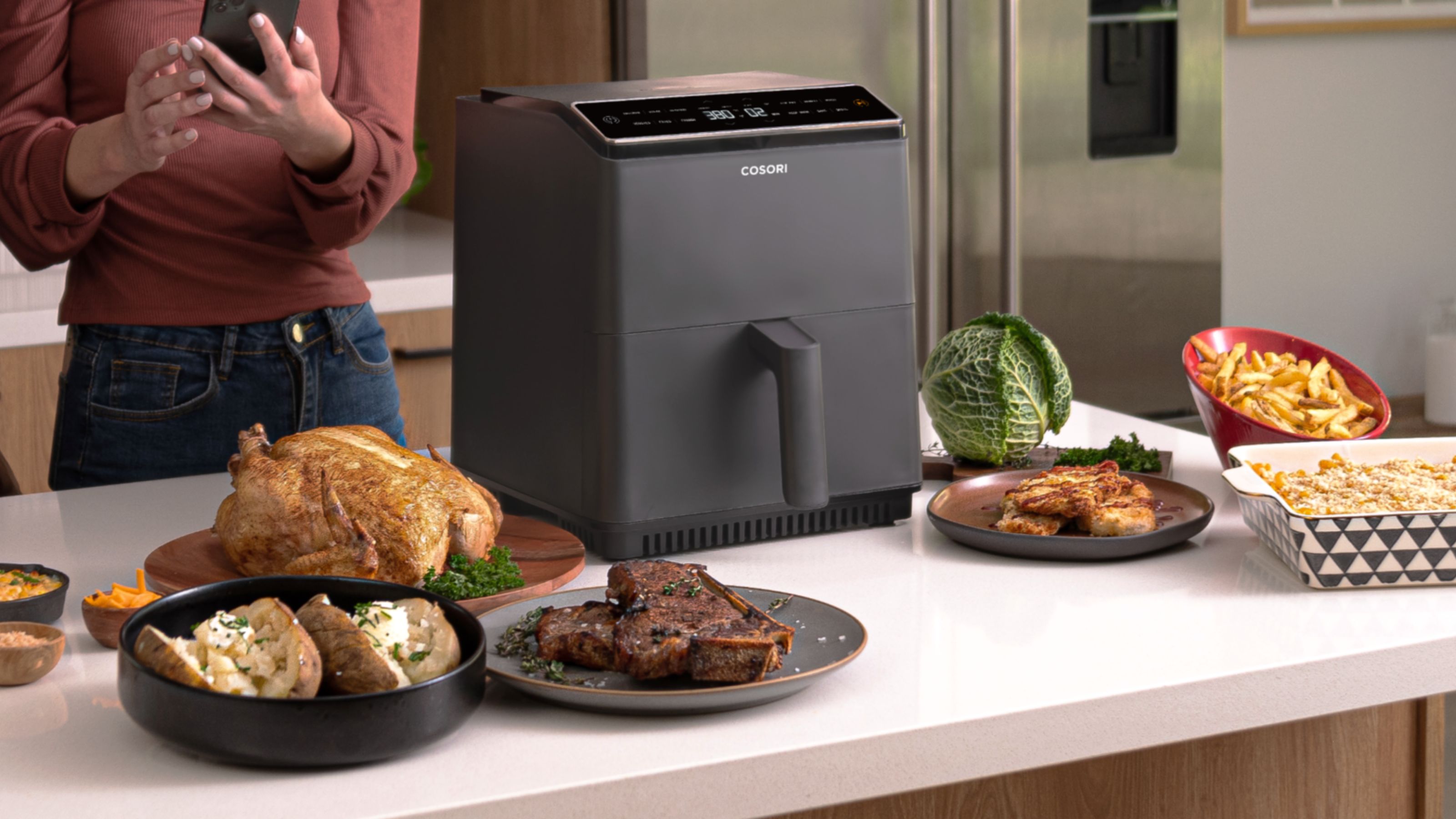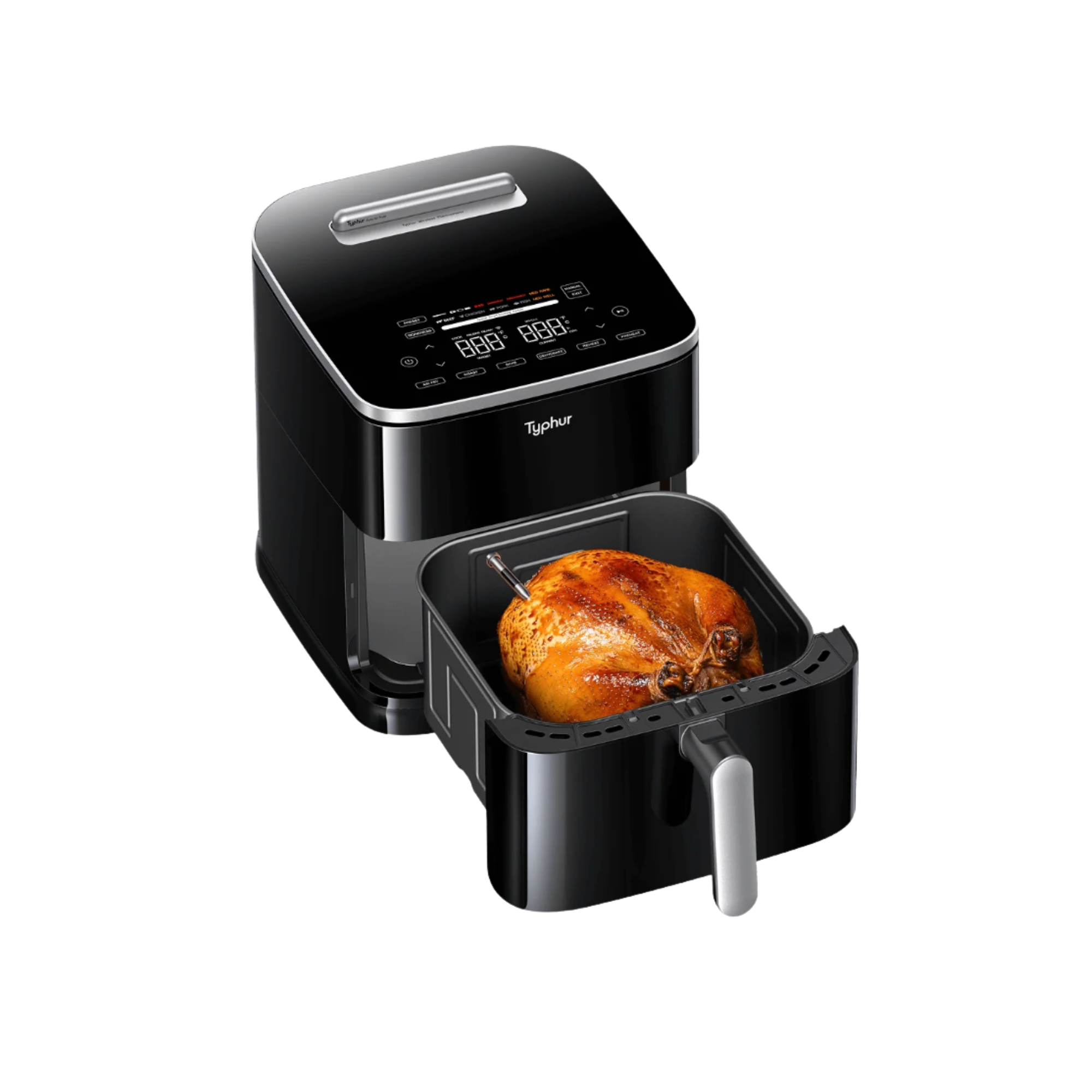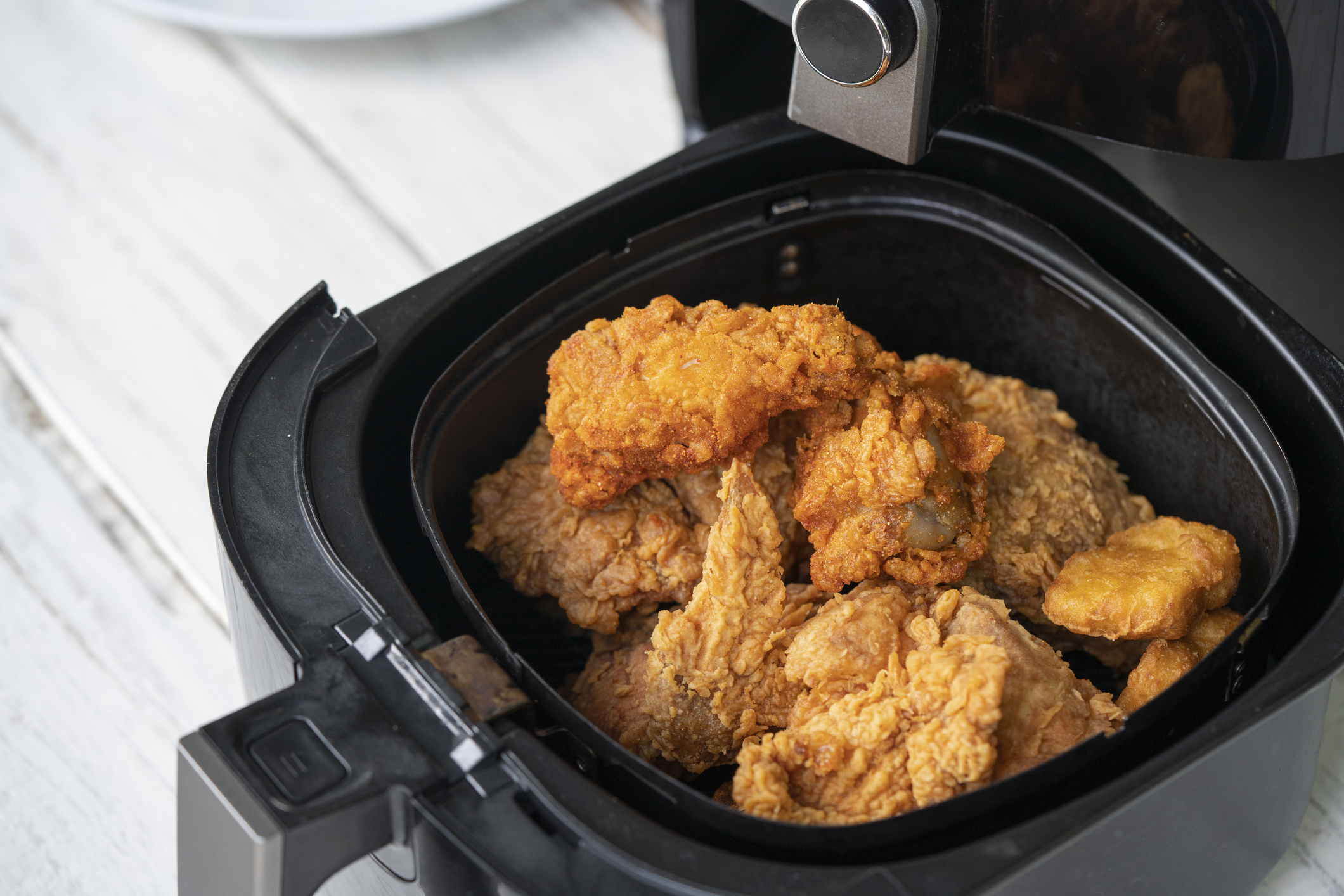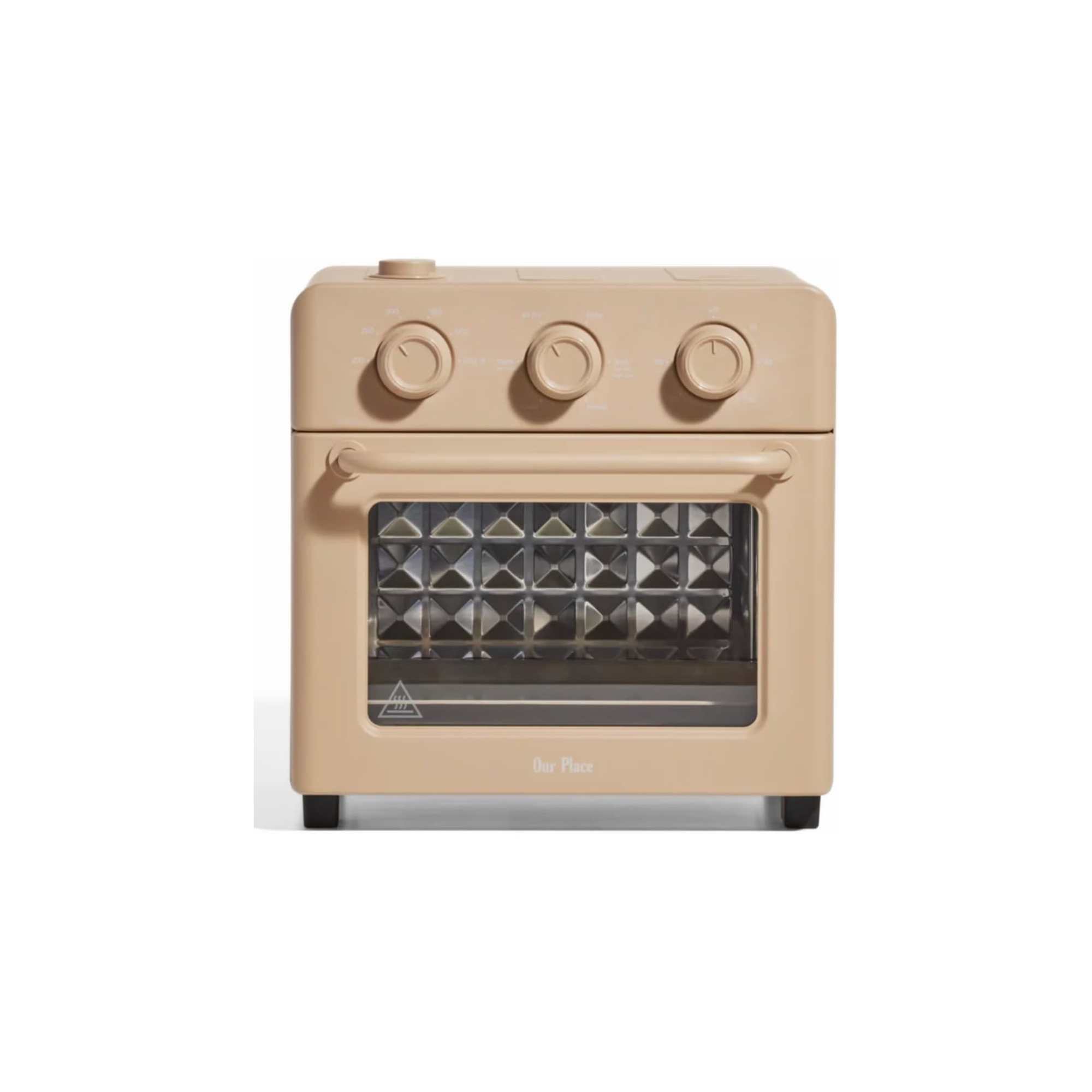Are air fryers toxic? We spoke to medical experts and found some solutions to reduce the risks
As a consumer journalist and air fryer tester, I have compiled the latest guidance on whether or not air fryers are toxic

Design expertise in your inbox – from inspiring decorating ideas and beautiful celebrity homes to practical gardening advice and shopping round-ups.
You are now subscribed
Your newsletter sign-up was successful
Want to add more newsletters?

Twice a week
Homes&Gardens
The ultimate interior design resource from the world's leading experts - discover inspiring decorating ideas, color scheming know-how, garden inspiration and shopping expertise.

Once a week
In The Loop from Next In Design
Members of the Next in Design Circle will receive In the Loop, our weekly email filled with trade news, names to know and spotlight moments. Together we’re building a brighter design future.

Twice a week
Cucina
Whether you’re passionate about hosting exquisite dinners, experimenting with culinary trends, or perfecting your kitchen's design with timeless elegance and innovative functionality, this newsletter is here to inspire
They’re compact, powerful, and efficient, but are air fryers toxic, too? While we swear by air fryers for making crispy food quickly, we’re seeing thousands of people questioning if they're toxic. There's lots of misinformation about the materials that air fryers are made from and how intense, high temperatures affect your food.
We have assessed some of the best air fryers on the market and often celebrated their high temperatures, speed, and non-stick features. However, there are potential health concerns in the event that you ingest the non-stick coating.
After speaking with industry and medical experts, we concluded that there’s probably no need to throw out your air fryer. However, there are some warning signs to look out for and some essential advice to follow if you want to mitigate the risks. We've even tested the best non-toxic air fryers to find some safer alternatives.
Is the non-stick coating toxic?
The biggest concern surrounds air fryers that use non-stick materials, like Teflon, which could contain ‘forever chemicals’. In scientific terms, these are known as PFAS.
Pam Hartnett, a Nutritionist and Public Health expert explains: ‘When heated to high temperatures, these materials can release chemicals into the air and your food, especially if your air fryer is scratched or damaged.'
According to the FDA, exposure to forever chemicals has been linked to significant health issues, such as 'increased cholesterol, high blood pressure, developmental effects, reduced immune response, and increased cancer risk.'
The International Agency for Research on Cancer has classified PFOA (a common PFAS chemical) as 'carcinogenic to humans', and Pam says she has seen links to several health issues in her own practice, including reproductive and developmental issues.
Design expertise in your inbox – from inspiring decorating ideas and beautiful celebrity homes to practical gardening advice and shopping round-ups.

Pam Hartnett MPH, RDN, owns The Vitality Dieticians. She is a Registered Dietician Nutritionist with a Masters in Public Health and a Certificate in Functional Nutrition. She has years of experience teaching nutrition, providing nutrition counseling, and implementing large-scale public health interventions to improve disease outcomes. She has contributed to US News Health Magazine, Forbes, Eating Well, and SHEFinds.
How can you reduce the non-stick risks?

The FDA explain that forever chemicals in non-stick are 'joined together in large molecules and are tightly bound to the cookware, so very little is capable of getting into food.' It seems that toxicity becomes an issue when the material is damaged or overheated.
Instead of panicking, Pam simply advises that we avoid using air fryers with scratched or chipped non-stick coatings that you could end up ingesting. To maintain a safe and healthy air fryer, the experts recommend avoiding the following air fryer mistakes.
- Never use abrasive wire sponges to clean the air fryer basket, since they will damage the lining.
- Avoid using metal utensils like steel tongs, knives, or metal spoons for the same reasons as above.
- Never heat the air fryer above 500°F; at this high heat, the non-stick lining could start to break down and emit toxic fumes. Most air fryers on the market only go up to 450°F for this exact reason, but it is good to know anyway.
- Never use light aerosol oil sprays in the basket. When we spoke to air fryer expert Sam Milner, she explained that these contain Lecithin which breaks down the non-stick lining over time.
If you’re really worried about the non-stick, you should choose an air fryer that is free from PFAS in the first place. Manufacturers have to label the non-stick materials, so you can see what is being used. I've tried and tested non-toxic air fryers that use ceramic and stainless steel instead, so you can cook with peace of mind. This includes the ceramic-coated Ninja Air Fryer Pro, which also happens to be our highest-rated air fryer and the best model on the market.

The Typhur Sync is precise, professional, and PFAS-free. It comes with a temperature probe for perfectly juicy meat and crispy fries. We say it's speedy, spacious, and safe.
Is air-fried food toxic?
The second concern is around the chemicals formed when foods are heated to high temperatures. Starchy foods may burn and form acrylamides at high heats, which the International Agency for Research on Cancer believes is 'likely to be carcinogenic to humans'.
Dr. Michelle Pearlman, a board-certified gastroenterologist, told me that air frying does pose a risk of producing these chemicals. She explained that ‘these by-products have been shown to be linked with heart disease and other chronic health conditions’.

Michelle Pearlman, M.D., is the co-founder of Prime Institute. She is a board-certified gastroenterologist and obesity medicine specialist. She uses food as medicine in her approach to treating patients, so carefully scrutinises scientific articles and reviews on health trends.

However, Dr. Pearlman is quick to point out that this happens in a range of cooking processes: 'Acrylamides are a natural by-product of cooking and are already found in lots of the foods that we eat: chips, fries, toast, cakes, and coffee.' So, the potentially harmful chemicals caused from cooking foods at high temperatures are not unique to air fryers.
How to reduce the risk of acrymalides?
If acrylamides are a concern to you, follow guidance from the United States Department of Agriculture to ‘limit consumption to prevent its adverse effects’. They also suggest blanching, microwaving, and only frying foods until they're golden yellow.' For this reason, I recommend choosing an air fryer with a window, so you can keep an eye on your food and ensure it doesn't end up burnt to a crisp.
I also recently interviewed some expert nutritionists for their healthy air frying secrets, and they recommended using high-smoke-point oils in the air fryer, rather than low or medium smoke point oils. Certified nutritionist Dr. Peter Brukner explains, 'Oils like corn oil or soybean oil are not good for air frying because they can burn at high temperatures and create unhealthy substances.'
Avocado oil is a good alternative. 'Avocado oil has a high smoke point of about 520°F (271°C), which makes it ideal for high heat cooking,' says Tracee Yablon-Brenner, registered dietitian nutritionist and trained culinary professional.

An air fryer window and interior light make it easy to keep an eye on your food and avoid burning. The Our Place Wonder Oven also has steel racks and nonstick ceramic sheets for baking, roasting, and air frying safely.
Read more: Our Place Wonder Oven review
FAQs
Which air fryers use ‘forever chemicals’?
Many air fryers use non-stick materials, and it's hard to know exactly what chemicals are involved in them. If you want an air fryer that definitely doesn't use PFAS, have a look at our list of the best non-toxic air fryers.
How do I stop my non-stick from peeling?
Be as gentle as possible when using non-stick appliances. Use wooden or silicone utensils and steer clear of abrasive sponges. Wash them gently using warm, soapy water.
Should I be concerned about air fryer heavy metals?
I have seen a couple of scare-mongering videos on TikTok talking about air fryer heavy metals, like lead and cadmium. However, well-known and reputable brands that sell air fryers in the U.S., Canada, or EU (like Ninja, Instant Pot, Our Place, and Philips for example) are subject to strict safety regulations that limit or even ban the use of lead or cadmium.
To be safe, I recommend looking for appliances that are food-safe certified by the FDA. Some brands (like Our Place and GreenPan) specifically market themselves as 'lead and cadmium free', so if you are concerned about air fryer heavy metals, just opt for these brands instead. I can recommend the Our Place Wonder Oven, as this is the air fryer I use at home.
Finally, definitely avoid super cheap, no-name brands with unclear manufacturing origin, vague descriptions or missing material lists.
Our Verdict
When used as intended and properly maintained, I’ve been assured by medical experts, scientific papers, and air fryer companies that these appliances are considered safe and non-toxic. They’re still a much healthier alternative to deep fryers. It’s important to choose a reliable model made with safe materials and to maintain it well. If the non-stick is peeling or scratched, stop using it immediately.

Lydia is the Kitchen Appliances Editor for Homes & Gardens, testing everything from air fryers and mixers to juicers and coffee machines. She trained in Culinary Arts at Leiths School of Food & Wine and previously served as the Recipe Editor for Mindful Chef.

